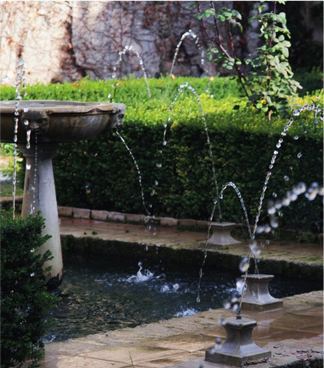Dec . 13, 2024 06:48 Back to list
submersible vs jet pump
Submersible Pumps vs. Jet Pumps An In-Depth Comparison
When it comes to pumping water from wells, aquifers, or other sources, two primary types of pumps come into play submersible pumps and jet pumps. Each has its unique characteristics, advantages, and disadvantages, making them suitable for different applications. In this article, we will explore the differences between submersible pumps and jet pumps to help you determine which option might be best for your specific needs.
What Are Submersible Pumps?
Submersible pumps are designed to be immersed in the fluid they are pumping. Typically encased in a watertight housing, these pumps have an electric motor that drives the impellers to move water efficiently from depths of up to several hundred feet below the surface. Their configuration allows them to push water to the surface rather than pulling it, which is a key difference from jet pumps.
Advantages of Submersible Pumps
1. Efficiency Submersible pumps are generally more energy-efficient, especially at greater depths. They can move large volumes of water with minimal energy consumption. 2. Space-Saving Being submerged means that they require less surface space, making them ideal for smaller installations.
3. Less Noise Since they are installed underground, submersible pumps operate quietly, which can be beneficial in residential settings.
4. Durability These pumps are built to withstand harsh environmental conditions such as corrosive fluids and high pressure.
Disadvantages of Submersible Pumps
1. Installation Complexity The installation process can be more complicated since these pumps need to be placed deep within the well.
2. Maintenance When a submersible pump fails, it often requires pulling from the ground for repair or replacement, which can be labor-intensive and costly.
What Are Jet Pumps?
Jet pumps function differently than submersible pumps. They typically consist of a motor located above ground and a jet assembly that creates a vacuum to pull water up from the well. This pump design works by drawing water through a narrow jet nozzle, mixing it with the jet of high-speed water from the motor, and effectively lifting it to the surface.
submersible vs jet pump

Advantages of Jet Pumps
1. Easier Maintenance Because jet pumps are installed above ground, they're generally easier to access for maintenance and repairs compared to submersible pumps.
2. Lower Initial Cost Jet pumps tend to have a lower upfront cost and simpler installation compared to their submersible counterparts.
3. Flexibility Jet pumps can often be used for applications involving shallow wells (typically less than 25 feet) and can be easy to relocate if necessary.
Disadvantages of Jet Pumps
1. Lower Efficiency Jet pumps are less energy-efficient and may struggle to provide adequate water flow at greater depths (beyond 25 feet).
2. Noise Being above ground means that jet pumps can be noisier than submersible options, which might be a consideration in residential areas.
3. Vulnerability The above-ground installation makes these pumps more susceptible to weather conditions and other environmental factors.
Applications and Use Cases
Choosing between a submersible pump and a jet pump largely depends on the specific water pumping requirements. Submersible pumps are favored for deep wells, irrigation systems, and situations requiring high efficiency and low noise levels. On the other hand, jet pumps are often chosen for shallow wells or applications where accessibility and maintenance are the main concerns.
Conclusion
In summary, both submersible and jet pumps have their respective benefits and challenges. Submersible pumps are typically more efficient and quieter but can be complex to install and maintain. Jet pumps offer easier maintenance and lower initial costs but may not be suitable for deeper water sources. Understanding the specific requirements of your pumping situation will guide you in making the right choice between these two types of pumps. Whether you need a pump for residential, agricultural, or commercial applications, assessing your depth, flow rate, and maintenance preferences will ultimately lead to an informed decision.
-
Submersible Water Pump: The Efficient 'Power Pioneer' of the Underwater World
NewsJul.01,2025
-
Submersible Pond Pump: The Hidden Guardian of Water Landscape Ecology
NewsJul.01,2025
-
Stainless Well Pump: A Reliable and Durable Pumping Main Force
NewsJul.01,2025
-
Stainless Steel Submersible Pump: An Efficient and Versatile Tool for Underwater Operations
NewsJul.01,2025
-
Deep Well Submersible Pump: An Efficient 'Sucker' of Groundwater Sources
NewsJul.01,2025
-
Deep Water Well Pump: An Efficient 'Sucker' of Groundwater Sources
NewsJul.01,2025
-
 Submersible Water Pump: The Efficient 'Power Pioneer' of the Underwater WorldIn the field of hydraulic equipment, the Submersible Water Pump has become the core equipment for underwater operations and water resource transportation due to its unique design and excellent performance.Detail
Submersible Water Pump: The Efficient 'Power Pioneer' of the Underwater WorldIn the field of hydraulic equipment, the Submersible Water Pump has become the core equipment for underwater operations and water resource transportation due to its unique design and excellent performance.Detail -
 Submersible Pond Pump: The Hidden Guardian of Water Landscape EcologyIn courtyard landscapes, ecological ponds, and even small-scale water conservancy projects, there is a silent yet indispensable equipment - the Submersible Pond Pump.Detail
Submersible Pond Pump: The Hidden Guardian of Water Landscape EcologyIn courtyard landscapes, ecological ponds, and even small-scale water conservancy projects, there is a silent yet indispensable equipment - the Submersible Pond Pump.Detail -
 Stainless Well Pump: A Reliable and Durable Pumping Main ForceIn the field of water resource transportation, Stainless Well Pump has become the core equipment for various pumping scenarios with its excellent performance and reliable quality.Detail
Stainless Well Pump: A Reliable and Durable Pumping Main ForceIn the field of water resource transportation, Stainless Well Pump has become the core equipment for various pumping scenarios with its excellent performance and reliable quality.Detail
